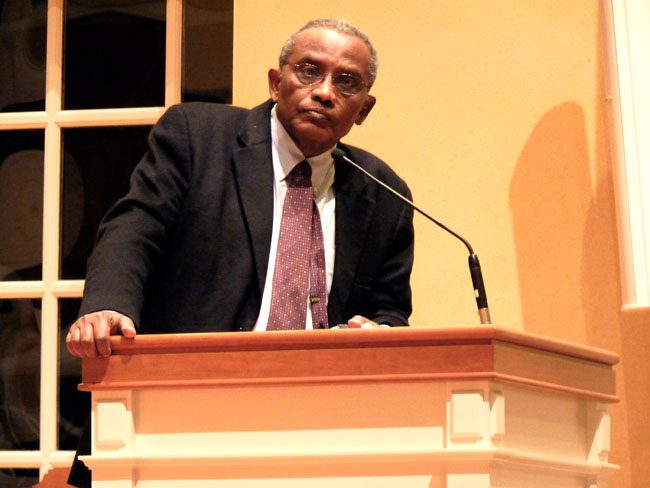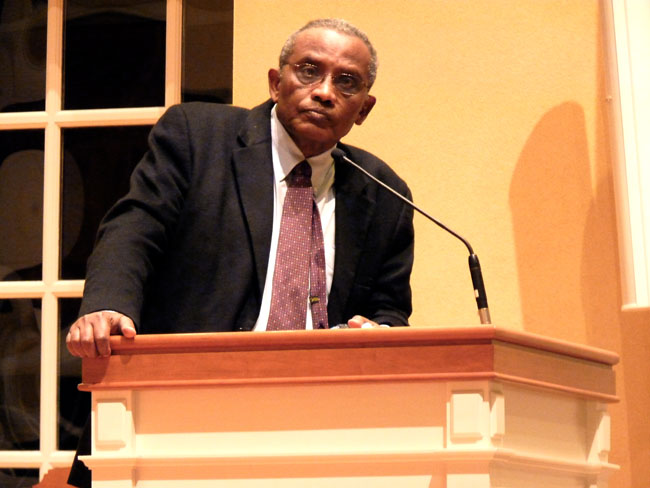Islam and democracy

NOVEMBER 5, 2012
by Maggie Johnson ’14, Contributing Writer
Is Islam compatible with democracy? In a presentation given Thursday in Daniel Chapel, Professor Abdullahi Ahmed An-Na’im asked the audience to take a cross-cultural look at democracy and its place within both “Western” and Islamic societies across the world.
An-Na’im, a native of Sudan and a professor of law at Emory University, is a renowned scholar of Islamic law and multicultural perspectives of human rights. The presentation, titled “Islam, Sharia, and Democracy,” was sponsored by the Muslim Student Association, and given as a third installment in Furman’s first annual World Religions Symposium.
Professor An-Na’im began his presentation by addressing the “question of compatibility or incompatibility” that many people have with regard to Islam’s relationship with democracy, a question that, according to An-Na’im, is a challenge to answer.
“We are contrasting two ideas that nobody can really define,” he said. “Neither Islam nor democracy has a wrought definition.”
For An-Na’im, instead of focusing exclusively on Islam in its relationship to democracy, it’s important to look at the cultural and historical context in which the relationship is set, mainly because Islam spans a variety of cultures who each have their own idea of what it means to be Muslim and democratic.
“It’s about the cultural condition rather than being a Muslim,” An-Na’im explained.
In addressing these different ideas of democracy, An-Na’im encouraged the audience to take a look at democracy in American society and to acknowledge both the similarities and differences it shares with Muslim societies and their ideas of democracy; something, according to An-Na’im, many Americans fail to do.
“The fact that people are dying for the right to vote has been completely rejected,” said An-Na’im, in reference to the ongoing conflicts in many Middle Eastern countries as a result of the Arab Spring. “People have stood up and suffered for their freedom.”
In closing, An-Na’im reminded those in attendance not to reject a society as democratic on the basis of differences in ideology.
“You are excluding a quarter of mankind when you say Islam is incompatible with democracy. It’s important to step back and give people the room to define for themselves what it means to be democratic and Muslim.”
